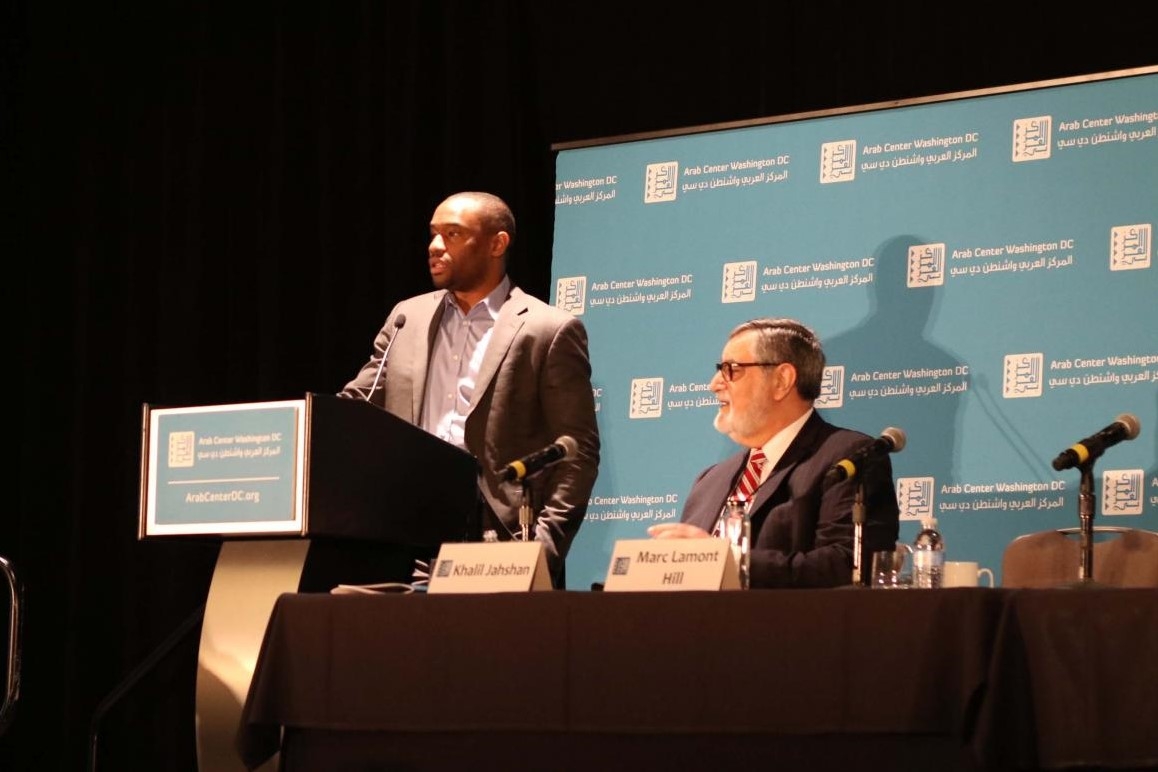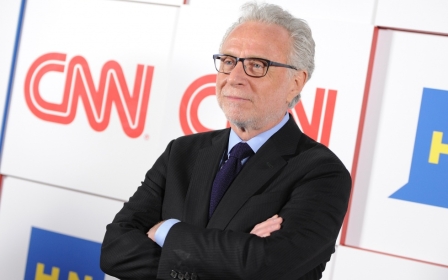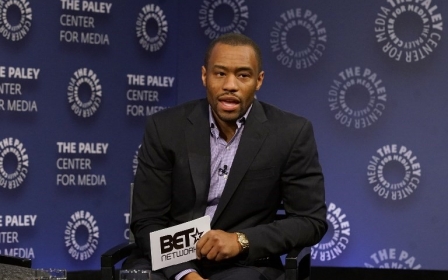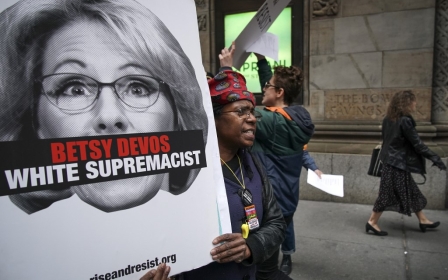Racism at heart of US media coverage of Middle East, says Marc Lamont Hill

Racism lies at the heart of how US media networks frame their coverage of the Middle East, said professor and activist Marc Lamont Hill, who was sacked by CNN last year after making comments in support of Palestinians.
In a keynote address at the Media and Democracy in the Arab World conference on Thursday, Hill said that US outlets continue to frame the region "as a place of anti-democracy".
"The Middle East continues to be constructed in ways that define it as the moral, ethical, intellectual opposite of the West," he said at the event, which was hosted by the Arab Center Washington DC.
Just last week, critics slammed the New York Times for publishing a column that included the line, "The Middle East could use a decent country", which they said played up anti-Arab tropes.
For years, the newspaper and other US media outlets have also been accused of being one-sided in their coverage of the Israeli-Palestinian conflict in particular, and a 2018 study by Canadian research firm 416Labs found that major US newspapers featured "four times more Israeli-centric headlines than Palestinian ones".
New MEE newsletter: Jerusalem Dispatch
Sign up to get the latest insights and analysis on Israel-Palestine, alongside Turkey Unpacked and other MEE newsletters
On Thursday, Hill said that type of problematic coverage stems from one thing.
'There's a long tradition of Black intellectuals and activists showing solidarity with Palestine'
- Marc Lamont Hill, professor of media studies
"I wish it weren't this simple; it's racism," he said.
A professor of media studies at Philadelphia's Temple University, Hill made international headlines in November 2018 when he was abruptly removed from his role as a CNN commentator after he made comments in support of Palestine.
In a speech delivered to the UN General Assembly at that time, Hill called for justice and solidarity for Palestinians.
"We have an opportunity to not just offer solidarity in words but to commit to political action, grassroots action, local action and international action that will give us what justice requires and that is a free Palestine from the river to the sea," Hill said at the UN.
Pro-Israel groups accused Hill of antisemitism over his comments, and the phrase "river to the sea", in particular.
He has vehemently denied the accusation. "My reference to 'river to the sea' was not a call to destroy anything or anyone," Hill said shortly after the incident.
CNN did not offer a reason for Hill's termination and did not explicitly confirm the decision was tied to his comments at the international body.
On Thursday, Hill addressed the controversy, saying he was surprised that it happened.
He said CNN had told him his comments did not align with the news network's values, but did not elaborate on what those values were.
"I didn't expect it to be a controversial matter," Hill said.
Pressure on activists
Hill isn't the only US activist to recently have faced a backlash over support for Palestine.
Earlier this year, renowned African-American author and civil rights icon Angela Davis said she lost a prestigious award over her "long-term support of justice for Palestine".
"I have indeed expressed opposition to policies and practices of the state of Israel, as I express similar opposition to US support for the Israeli occupation of Palestine and other discriminatory US policies," Davis wrote in a statement at the time.
Amid a widespread public backlash, the Alabama institute that was handing out the award later reversed its decision and asked Davis to re-accept the accolade.
"There's a long tradition of black intellectuals and activists showing solidarity with Palestine," Hill said on Thursday, mentioning the efforts of Davis and others.
He said that solidarity was renewed during the 2014 Black Lives Matter protests in Ferguon, Missouri.
"The media attention to that does create a certain type of concern for people who are trying to dismantle this relationship," he said.
In his UN speech last year, Hill also expressed support for the Boycott, Divestment, and Sanctions (BDS) movement in support of Palestinian rights.
Founded in 2005, the Palestinian-led movement aims to put pressure on Israel to end its abuses against Palestinians through economic boycotts and other non-violent means.
The BDS movement has been widely vilified in the US, where several states have passed anti-boycott legislation in an attempt to curb criticism of Israel, especially on college campuses.
Middle East Eye delivers independent and unrivalled coverage and analysis of the Middle East, North Africa and beyond. To learn more about republishing this content and the associated fees, please fill out this form. More about MEE can be found here.





